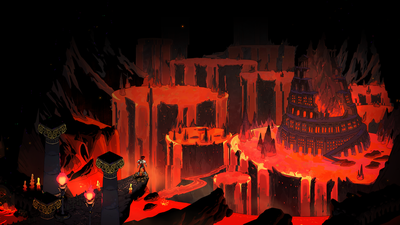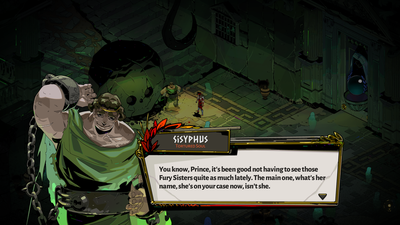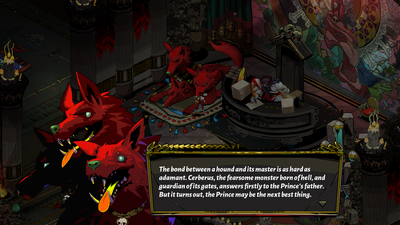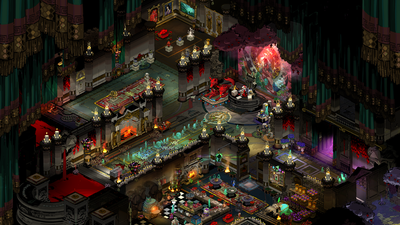Hades
It’s very difficult at this point to say anything about Hades that hasn’t already been said, not because of any lack on the part of this Underworld roguelite, but because so many others before me have loved and effusively written about this game. A week after its early access release in September 2020, it had already sold 1,000,000 copies. It was listed as just about everyone’s 2020 game of the year and even won the first ever Hugo award given to a videogame (for the unfamiliar, those are literary awards for sci-fi and fantasy). Suffice it to say, Hades is critically and personally well-loved.
“But wait!” you say, “I’m no lemming. What is Hades, really? And is it… actually good?” Fair enough.

Hades is a narrative-driven roguelite set in Greek mythology that tells the story of Zagreus, son of Hades, shortly after he discovers a surprising truth about his parentage. Determined to put his anger about being lied to and his frustration with his stern, cold, and impatient father to better use, he attempts to escape from the House of Hades and his Underworld home, aided by his godly relatives on Olympus. Standing between Zagreus and the surface are the many monsters and hazards that Hades put in place to keep the dead from escaping, often resulting in Zagreus’s death and return to the House via the river Styx. Therein lies the game’s core mechanic of repeated and semi-randomized runs, each an opportunity for Zagreus to claw ever closer to the surface and the answers to his many questions.

Along the way, Zagreus forms relationships with his Chthonic relatives and friends in the House of Hades and with the gods of Olympus as they aid him in his escape. In true Supergiant Games style, these characters are each distinct personalities unto themselves with beautifully rendered portraits and top-notch voice acting. Largely thanks to the game’s writing and length, relationships grow and change in believable ways, taking the player on an emotional journey that mirrors Zagreus’s own.

The long character arcs are supported by fast combat and seamlessly integrating progression systems that create the “just one more run” hook. Resources gathered in a run can be used to make Zagreus permanently stronger, spent on decorations and new features for the House, or given as gifts to improve relationships (represented as heart meters a la Stardew Valley). Rare goods earned from defeating bosses can unlock new “aspects” of various weapons, changing their play style or fusing with other mechanics in Zagreus’s repertoire. Keepsakes given to Zagreus by his friends can make the difference between living and dying, and like the relationships they represent, they grow stronger as Zagreus spends more time with them.

As rewarding as it is to deepen relationships and have initially punishing runs become second nature over the course of repetition, Hades is a touch too long for its own good. For the 40 hours it took to me to reach the main ending—triggered by escaping to the surface 10 times—I was dazzled by the interlocking progression systems, character development, and random surprises and quirks (like stealing from Charon). The 25-hour-long road through the epilogue to the full narrative conclusion, however, seemed to stretch out even longer than the first. I completed runs on autopilot, sped along by the Pact of Punishment’s time limits for easy heat, no longer surprised at the ease with which I navigated my way through hell.
Perhaps this is the nature of finding one’s self and place: we trade the head-spinning thrill and crises of the search for the safety and security of knowing, and from the space of knowing we choose our ventures selectively. The epilogue shows us how Zagreus’s potential for redemptive, generous, and loving acts are discovered only after finding his place within community.